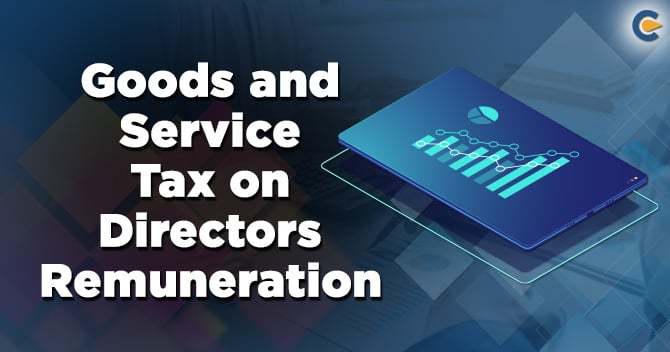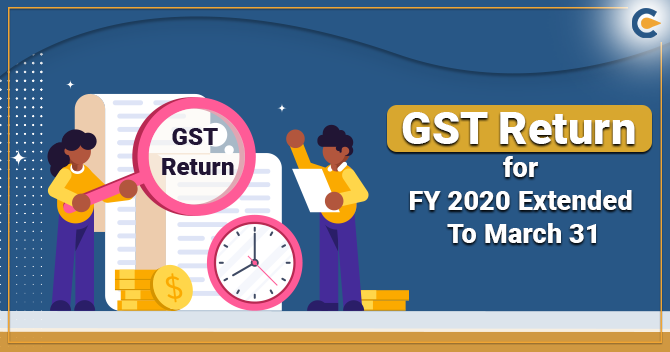Directors remuneration is payable for the services that the director offers. The supreme power of a company or a corporate firm is the director. Services related to a corporate body or companies are the part of services that the director offers.
In the recent case of M/S CLAY CRAFT INDIA PVT LTD the Rajasthan Authority for Advance Ruling has given a message that companies will be liable to pay goods and service tax on the remuneration paid to directors. Furthermore, salaries paid to directors would fascinate GST. Under the reverse charge mechanism, GST will be chargeable on directors’ remuneration. Government proposition would get followed on the basis of the case of M/S CLAY CRAFT INDIA PVT LTD in the recent Advanced Ruling by Rajasthan AAR.
As per the declaration made on 20 February 2020, Rajasthan AAR has held that the services rendered by the director will get distinct identity, and their inclusion will be in the services category in which goods and service tax will be payable under reverse charge mechanism.
GST Applicability on Directors’ Remuneration
Based on the reverse charge mechanism, GST is applicable on Directors’ Remuneration. The CBIC has shed light on this point by further stating that at the time of return filing, when the reverse charge applies, the recipient of the service must pay the taxes on RCM. In the directors’ remuneration case, the Company makes the GST payment on the remuneration of directors.
Evaluation of the Information on the GST Payable under RCM on Directors’ Remuneration
- Under the Goods and Service Tax Act[1], no section talks about the directors, but the same thing has got covered under the Companies Act. As per the classification, directors can be of two types-
- Executive Directors
- Non-Executive Directors
Under the Companies Act, 2013, the information is available about Whole Time Director. Executive Directors are the Whole Time Director. This director acts as a director for the Company’s whole-time employment. In brief, Executive Directors are those directors who got the tag of the whole-time employee of the Company.
- According to the 2(78) of the Companies Act, 2013, remuneration is money or equivalent to the money that any person gets for services he has provided and also includes perquisites mentioned in Income Tax Act, 1961.
Remuneration shall be a part of remuneration paid to him for services provided. Notwithstanding this rule, there is no inclusion of remuneration paid for services of professional nature as well as sitting fees.
- The remuneration that whole-time directors received must go through the assessment process beneath the head “Income from Salary” and won’t get assessed under “Income from Professional Fees.” Also, there is a scope of deduction of TDS on salaries paid to whole-time directors.
- Schedule III of the CGST Act asserts that services that employees provide to their employers regarding their employment won’t be a part of the Supply of goods or services.
- In the general circular no. 24/2012, the Ministry of Corporate Affairs has defined that the Non-Whole Time Directors are out of the exempted list. Besides this, service tax is payable on the commission payable and sitting fees paid to Non-Whole Time Directors.
Read our article:GST Return Filing Procedure – Types of GST Returns, Due Date and Penalty
Concise Insights on the Above-Stated Points related to Directors’ Remuneration
- Executive Directors and Managing Director involved in the Company’s whole-time employments are employees of the Company. On the other hand, non-executive directors are not the Company’s employees.
- Schedule III will include all the services rendered by Executive Directors within the employment range. Services given by employees to their employers concerning their employment would be objectionable to be a part of the Supply of goods or services.
Case Analysis
In M/S. Allied Blenders and Distillers Pvt. Ltd. case, CESTAT, Mumbai has held that those Directors, who are looking into the management matters of the Company, were presented as employees of the Company to all statutory bodies. Provisions of the respecting Acts were conferring the director as an employee of the Company. Therefore, Service tax got levied on the remuneration paid to the director.
AAR didn’t try at all to differentiate between non-executive directors and executive directors. M/S Clay Craft India Pvt. Ltd Company was paying remuneration along with commission. In addition to this, the Company was discharging goods and service tax under reverse charge mechanism on the commission amount paid to directors. After jumping to the decision, AAR has taken the fact into consideration that the Company was paying goods and service tax on commission given to directors under the reverse charge mechanism. Along with this, it held that on remuneration paid to directors, GST was charged.
Confusions require Clarifications
The decision of AAR has brought puzzlement, which may lead to legal actions. Directors would demand goods and service tax to get levied on the directors’ remuneration regardless of the fact that it is paid to non-executive or executive director. It would take a lot of time for things to get clarified to liberate the taxpayers from the burden of judicial proceedings and will eventually head to ease of compliance process.
Is it Mandatory for Directors of Company to get GST Registration?
Although goods and service tax is applicable on directors remuneration, remuneration paid directors are not liable to obtain GST registration. Only rendering directors service is not enough. Nevertheless, those companies which are receiving the services and are accountable to make GST payment on the reverse charge mechanism would have to take GST registration without consideration of yearly turnover.
Conclusion
CBIC has confirmed that GST is applicable to directors’ remuneration on the basis of reverse charge method. Since GST applies on a reverse charge basis, only providing director services won’t make a person liable for obtaining goods and service tax registration.
Read our article:How to change Authorized Signatory in GST











